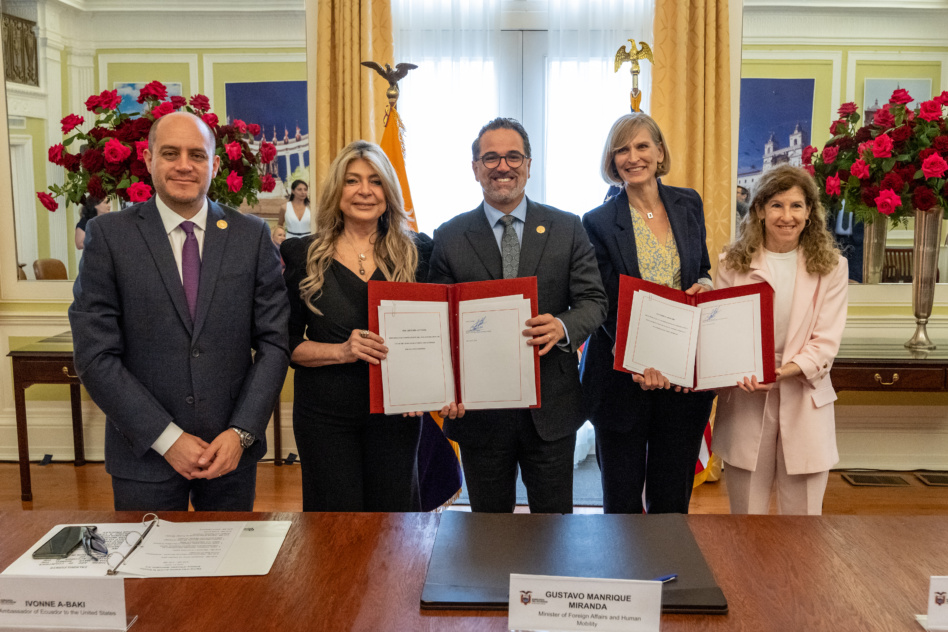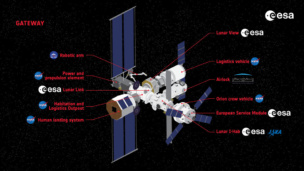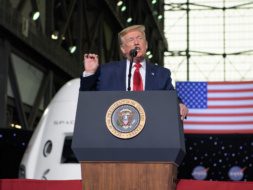The Biden administration’s “very intentional” effort to make space part of its international engagement has boosted the number of partners interested in collaborating with the US in orbit, the State Department’s Valda Vikmanis-Keller told Payload.
Last week, Ecuador and India became the 26th and 27th nations to join the Artemis Accords. Just a few months prior, the Biden administration announced a trio of space partnerships within the span of a week: increased SSA sharing with the Philippines, more cooperation in orbit with South Korea, and the Czech Republic’s signing of the Artemis Accords.
Vikmanis-Keller said adding space priorities to the agenda when foreign officials visit Washington is no accident.
“With all of these partners, whether they are advanced spacefaring countries, whether they are interested in being spacefaring countries, whether they want to partner in some way…it has been very intentional,” Vikmanis-Keller said. “There is really a significant uptick in the amount of activity surrounding space and all of the potential partners that are interested in some sort of collaboration, cooperation, or dialogue.”
We sat down with Vikmanis-Keller, the director of State’s Office of Space Affairs, this month on the sidelines of the Secure World Foundation’s Summit for Space Sustainability in NYC to get an update on the administration’s international space outreach, what’s happened since the department’s Strategic Framework for Space Diplomacy roll out last month, and upcoming milestones for the Artemis Accords.
Artemis Accords 101
More than two dozen nations have signed on to the Artemis Accords, a set of guidelines led by the US for the responsible use of space. Even though they share a name with NASA’s Artemis program to send humans back to the Moon, Vikmanis-Keller stressed that the accords are different from and broader than just the lunar mission, and that they include driving conversation about collaboration on things such as sustainability and orbital debris mitigation.
“I anticipate that as we continue to grow our number of signatories, as this conversation continues to mature and develop, we will talk about things like post-ISS [and] the whole host of issues that have been touched on here today,” she said. “I see it as a platform that can augment existing discussions.”
A work in progress: Signatories have established two working groups that meet virtually every month and will present their findings at the IAC in Baku, Azerbaijan in October, Vikmanis-Keller said. One working group is focused on how to deconflict activities on the lunar surface, while the other is considering what value nations get by signing onto the accords, especially if they don’t have a domestic space program.
A place for all
Vikmanis-Keller said she’s made her own pitch to non-spacefaring nations to convince them of the value of joining the accords, especially if they use space data for priorities such as studying climate change, predicting extreme weather and flooding, or studying illegal fishing.
“Even if you are not going to be a launching state or going to have a robust space sector, you as a country that benefits from space data—as we all do—you want a seat at the table,” she said. “You want to hear what the discussions are, and you want to have a voice and be part of that discussion.”
It takes two: In addition to multilateral fora like the Artemis Accords or the UN’s COPUOS, Vikmanis-Keller said her office is in active discussion with “tens” of countries who want to talk bilaterally with the US about their plans in space.
“We more and more are getting countries [that are] reaching out and saying, ’Hey, we are thinking about developing a framework for space activities’, or ‘We’re thinking about how this may impact our commercial sector…Can we talk to you?’” she said. “The answer is yes.”
She also said partners are reaching out to her office about the Strategic Framework for Space Diplomacy released last month, saying that it serves as an example they can point to when considering how to elevate the conversation about space and organize the complex interagency oversight of space in their own countries.
What’s next? The State Department is considering doing a rollout of the framework specifically targeted to foreign governments, to discuss the document and answer any questions, Vikmanis-Keller said.




